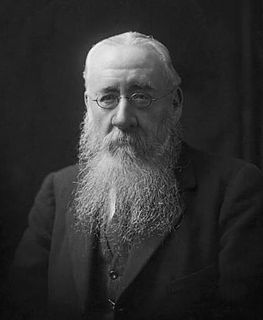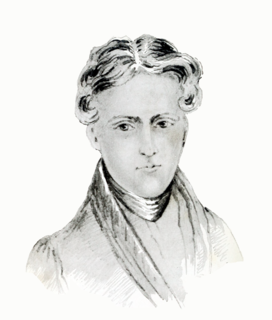A Quote by George Saintsbury
So, then, there abide these three, Aristotle, Longinus, and Coleridge.
Related Quotes
Abide with me; fast falls the eventide; The darkness deepens; Lord, with me abide; When other helpers fail, and comforts flee, Help of the helpless, O, abide with me. Swift to its close ebbs out life's little day; Earth's joys grow dim, its glories pass away; Change and decay in all around I see; O Thou, who changest not, abide with me.
Through Plato, Aristotle came to believe in God; but Plato never attempted to prove His reality. Aristotle had to do so. Plato contemplated Him; Aristotle produced arguments to demonstrate Him. Plato never defined Him; but Aristotle thought God through logically, and concluded with entire satisfaction to himself that He was the Unmoved Mover.
When Coleridge tried to define beauty, he returned always to one deep thought; beauty, he said, is unity in variety! Science is nothing else than the search to discover unity in the wild variety of nature,-or, more exactly, in the variety of our experience. Poetry, painting, the arts are the same search, in Coleridge's phrase, for unity in variety.
It will always be considered a praiseworthy undertaking to urge the most obstinate and incredulous to abide by the principles that impel men to live in society. There are, therefore, three distinct classes of vice and virtue: the religious, the natural, and the political. These three classes should never be in contradiction with one another.
The comparison between Coleridge and Johnson is obvious in so far as each held sway chiefly by the power of his tongue. The difference between their methods is so marked that it is tempting, but also unnecessary, to judge one to be inferior to the other. Johnson was robust, combative, and concrete; Coleridge was the opposite. The contrast was perhaps in his mind when he said of Johnson: "his bow-wow manner must have had a good deal to do with the effect produced.




































